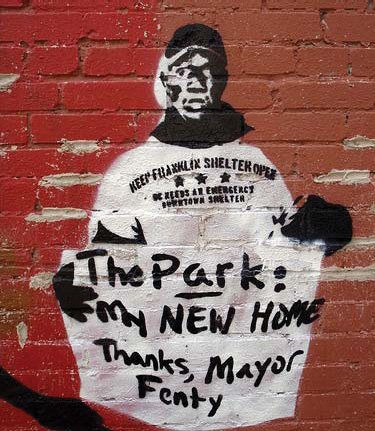This is “Case Studies”, section 7.5 from the book Business Ethics (v. 1.0). For details on it (including licensing), click here.
For more information on the source of this book, or why it is available for free, please see the project's home page. You can browse or download additional books there. To download a .zip file containing this book to use offline, simply click here.
7.5 Case Studies
Payola and the iPhone App

Source: Photo courtesy of Cat Sacdalan, http://www.flickr.com/photos/permanent3rdgrade/3509251547/.
The word payola traces back to rock and roll’s early days, back when the only large-scale way new acts could get their name and music out was on the radio. Deejays in the 1960s controlled their own playlists much more than today, so a band could drive into town, play a few concerts, and pay off a few deejays to get their songs into the rotation. When they rolled out toward the next stop, they left behind the impression that they were the next big thing.
It’s not illegal for a deejay, radio station, or anyone at all to accept money in exchange for playing someone’s music, but US law does make pay for play illegal if the sponsorship isn’t openly divulged, if the song isn’t treated, in other words, as a commercial.
Today’s media world provides almost infinite ways for musicians, video commentators, moviemakers, and iPhone app developers to get word out about what they’re doing. Anyone can post a video on YouTube or give away software on a web page. Payola is still out there, though. Wired magazine ran a story about it in the world of iPhone apps.
It works like this. You invent an iPhone app but can’t get anyone to notice. What do you do? One possibility is offer money to one of the well-known iPhone app review sites in exchange for a review of your creation. That gets the word out pretty well, so developers are starting to pay up. This modern payola scheme is enraging the iPhone community, however. Jason Snell, who works for Apple’s own app-review website complains, “Readers need to know that true editorial reviews are fair, and aren’t the product of any quid pro quo involving money or any other favors.”Brian X. Chen, “Fallout from Wired.com’s iPhone App Payola Story,” Wired, Gadget Lab, March 24, 2010, accessed May 19, 2011, http://www.wired.com/gadgetlab/2010/03/app-review-payola-reaction.
Michael Vallez, owner of the app-review site Crazy Mike’s Apps, disagrees. He charges for reviews without disclosing that to his readers, but he doesn’t guarantee a positive report. If he thinks the app isn’t worth buying, he sends the money back and cancels the review.
The Wired article concludes with an opinion from Kenneth Pybus, a professor of journalism and mass communication: “Undisclosed paid reviews are indisputably unethical because they manipulate the public. That’s an easy call to say it’s ethically wrong because that is a disservice to readers. It ought to be information that applies to readers and not information that advances yourself financially.”
Questions
- Professor Pybus believes there’s a conflict of interest operating when Vallez accepts money to write reviews for his website Crazy Mike’s Apps. What, exactly, is the conflict?
-
Vallez says that his actions do not cause a conflict of interest, only the appearance of a conflict.
- What’s the difference between a conflict of interest and the appearance of a conflict of interest?
- How could Vallez argue that in his case there’s only an appearance, and, on close inspection, there really is no conflict here?
-
Three standard strategies for alleviating ethical concerns surrounding conflicts of interest are
- transparency,
- recusal,
- organizational codes.
How could each of these strategies be applied to the conflict-of-interest issue at Crazy Mike’s Apps?
-
You develop an iPhone app and you pay Vallez to review it. He tries the app, likes it, and writes up a positive paragraph.
- Make the case to defend the payment as an ethically acceptable gift. Are there limits to how much you could give before it would shift from a gift to a bribe? If there is a limit, how was the number chosen?
- Vallez says that if he doesn’t like an app he returns the money and refuses to review it. Does this fact interfere with the possibility of justifying the payments as a standard, business-type gift?
-
Old style payola—paying to get a rock band on the airwaves isn’t dead. According to a story from ABC News, the practice is alive and well; the only difference is that it’s no longer the deejays who get the cash, it’s high-level executives because they’re the ones who set today’s playlists. Here’s a comment from Foo Fighters drummer Taylor Hawkins: “I think back in the ’70s they used to pay people with hookers and cocaine, and now they’re just doing it with straight-up money. So they can all go out and buy their own hookers and cocaine.”Brian Ross, Richard Esposito, and Vic Walter, “Pay to Play: Music Industry’s Dirty Little Secret,” ABCNews.com, February 8, 2006, accessed May 19, 2011, http://abcnews.go.com/Primetime/story?id=1591155&page=1.
There’s a difference in the business world between providing entertainment and giving gifts. What is the distinction?
- Why might entertainment be considered less ethically objectionable than gifts?
- Leaving aside moral concerns about hookers and drugs, ethically, is there a difference between a rock group’s manager inviting radio executives out on a hooker and cocaine evening on one side and just sending them cash on the other? If there’s a difference, what is it? If not, why not?
The Decorator’s Kickback

Source: Photo courtesy of Cara Fealy Choate, http://www.flickr.com/photos/carabou/139790339/.
On a message board, Ms. G. C. from Miami writes,
Here’s the problem: an interior decorator’s bid is broken down into two parts-(A) the decorator’s services and (B) the cost of labor and supplies. Most customers think (B) is a fixed cost-they forget it’s not the decorator’s fault if cabinetmakers charge an arm and a leg. So, where do customers look the closest when they’re comparing costs? That’s right, (A)-the decorator’s fee.
Well, decorators are creative people and for years they’ve been doing some very creative bidding. They’ve been lowballing (A) and padding (B), expecting the laborers to kick back a percentage of their inflated fees to the decorator. Surprised? Everyone’s doing it. Everyone, that is, except me. It’s deceptive. And as a Christian, I think it’s just plain wrong.
The customer’s final cost is about the same either way you cut it, so most decorators don’t feel they’re doing anything wrong. Are they right?
Needless to say, “blowing the whistle” on such a widespread and accepted practice would only damage my professional reputation.Ms. G. C. from Miami, “The Case of the Casual Kickback,” Urbana.org.
Questions
- Mrs. G. C. confronts a third-party obligation. What is it?
- Ethics can be weaponized—that is, used in your personal interest. Show how this could be the case here. Does the fact that she would benefit by getting these kickbacks eliminated somehow make her position less morally respectable? Why or why not?
- Typically, according to Mrs. G. C, a client contracts an interior decorator. Later that decorator hires a laborer, and the laborer gives the designer a kickback. There’s a conflict of interest here, what is it? What is the ethical case against this kickback scheme?
-
Consequence theories of ethics represent the point of view that acts themselves are not good or bad; all that matters are the consequences. Therefore, lying isn’t bad if it happens that a fleeing criminal is asking you which way is the best escape route, and you point him down the street leading to the police station. Duty theorists, by contrast, believe that certain acts including lying and stealing are wrong regardless of the context and consequences.
- Do you suppose Mrs. G. C. adheres to a consequence ethics or a duty ethics? Why?
- Could you use the idea of consequence ethics to try to convince her to simply join the crowd and do what everyone else is doing? What would that case look like?
-
If you wanted to put an end to this pervasive kickback practice in the interior decorating world and only had time to present one argument, which of the following would you choose?
- The practice should be stopped because it involves unethical kickbacks.
- It should be stopped because it’s dishonest in the sense that consumers are misled.
- It should be stopped because the straight shooter is getting the shaft.
Why did you choose that argument and how could it be elaborated more fully?
-
Imagine that Mrs. G. C. from Miami reveals her name and makes a whistle-blowing cause out of her unhappiness with the standard practice in her profession.
- What kind of reprisals and negative effects might she expect?
- Do you believe whistle-blowing is justified in this situation? Why or why not?
- Is it required? Why or why not?
Sex, Money, and Whistle-Blowing

Source: Photo courtesy of j9sk9s, http://www.flickr.com/photos/j9sk9s/4128778346/.
Like all recent NBA All-Star players, Kevin Johnson made a lot of money during his pro basketball career. It drained out fairly quickly too. A few hundred-thousand went to the family of a sixteen-year-old high-school girl in Phoenix after a he-said, she-said sex accusation. A decade later, a similar story emerged, but at a different place: this time it was three girls in Sacramento, California, who attended St. Hope Academy. They took their stories—each told of a similar incident involving Johnson—to the recruitment advisor, Jacqueline Wong-Hernandez. Soon after, Ms. Wong-Hernandez was gone. Her resignation was a protest over the way the complaints were handled internally at the school, which was by dismissing them. Not only did St. Hope Academy take no action, the local police also decided not to press any charges in a case that essentially came down to one person’s word against another’s.
St. Hope Academy, as it happens, wasn’t a public school but a private business, and Kevin Johnson was the founder and CEO. A lot of the money flowing into the young institution came from the federal government as grants from the AmeriCorps program. After accusations surfaced that the grant money wasn’t spent appropriately, the school agreed to pay back $423,836.50 to the government (about half of what the school had received). The first payment, about $73,000, was made by Kevin Johnson himself.
So things probably would have ended, except for an AmeriCorps inspector general named Gerald Walpin. He believed Johnson had gotten way too good a deal: the school should have been forced to pay back much more of the grant money it had received. On May 5, 2009, he took the accusation to a California congressman who in turn brought public attention to the issue. On June 10, Mr. Walpin was fired. In an editorial statement, the Washington Times complained, “Mr. Walpin was fired with no explanation and no warning to Congress, even though the act governing inspectors general says IGs can be removed only after the president gives Congress 30 days’ notice and a reason for the firing. Rather than investigate the IG’s serious complaints, Mr. Obama fired him. In short, he snuffed out the whistleblower rather than heed the whistle.”“Editorial: Stonewalling on Walpin-gate,” The Washington Times, July 10, 2009, accessed May 19, 2011, http://www.washingtontimes.com/news/2009/jul/10/stonewalling-on-walpin-gate.
A local Sacramento TV station doing some follow-up uncovered a report detailing hush money payments at St. Hope and noted that the former NBA All-Star “often described himself as a personal friend” of another avid basketball player, President Obama.“Report: Johnson Offered to Pay Accuser,” KCRA.com, November 20, 2009, accessed May 19, 2011, http://www.kcra.com/news/21679385/detail.html.
Questions
-
How were the following two faced with a third-party obligation?
- Jacqueline Wong-Hernandez
- Gerald Walpin
-
In general, there are three possible responses to third-party obligations, do nothing, report the problem, become a whistle-blower. How would you categorize the response made by
- Wong-Hernandez?
- Walpin?
-
What questions can be asked to help determine whether whistle-blowing is justified? How might they be answered in the case of
- Wong-Hernandez?
- Walpin?
-
What questions can be asked to help determine whether whistle-blowing is ethically required? How might they be answered in the case of
- Wong-Hernandez?
- Walpin?
Loyal to the Badge

Source: Photo courtesy of Daniel Lobo, http://www.flickr.com/photos/daquellamanera/3250853982/.
When police officer April Leatherwood went undercover in Memphis, she changed her name to Summer Smith. She didn’t change her socks for a year—no showers or brushing her teeth either.
Her daily routine was to hang out on the street smoking and trying to befriend drug addicts. They’d take her to their dealers, where she’d make a buy and then try to find out who was the next person up the ladder. Her work resulted in about three hundred arrests, everyone from two-bit drug sellers to major movers who organized the street-level crime from luxury apartments.
Why’d she do it? According to the newspaper article relating her story, she loved the camaraderie of the department and its protect-and-serve mission.
When she emerged from the undercover program, she was promoted to detective. Unfortunately, her three-year romantic partner had moved on, and it was difficult to get the bad memories out of her mind. Still, when the reporter asked whether she’d do it again, she said, “Yeah.”Kristina Goetz, “A Year of Living Dangerously Takes a Toll on Undercover Memphis Officer,” Commercial Appeal, August 30, 2009, accessed May 19, 2011, http://www.commercialappeal.com/news/2009/aug/30/year-of-living-dangerously-takes-its-toll.
Questions
-
The two ideas on which company loyalty—or organizational loyalty to broaden the title—is built are the following:
- An attachment to the organization that is noninstrumental, meaning the attachment is not maintained only because it serves the employee’s concrete interests, such as the need for a salary.
- A deposited value in the organization that goes beyond any individual and their attachment: the organization’s value continues even without those who currently feel it.
How are these ideas manifested in the case of April Leatherwood?
- Three measures on the scale of loyalty intensity are obedience loyalty, balanced loyalty, and free agency. Given what you’ve read about Leatherwood, where would you put her on this scale? Why?
-
Think about one of the career lines you’re considering, or the one you’re currently on, and imagine your company loyalty was similar to Leatherwood’s.
- What kinds of sacrifices do you imagine you’d make for the organization?
- Thinking about yourself, really, would you be able to make those sacrifices?
-
Leatherwood’s pay is not high, about $50,000 a year. That works out to about $7 an hour for the twelve undercover months. Obviously she enjoyed no status while she was undercover. Now, however, she has appeared in the newspaper and made detective grade in the department. In your opinion from what you’ve read, do you believe she has acquired a level of status through her work?
- If she has acquired a status, how would you describe it, what is it based on, how is it different from the status enjoyed by, say, a senator or a movie star?
- Does this status—assuming she’s acquired it—compensate what she suffered? Explain.
The Gawker Sex Tape

Source: Photo courtesy of Johan Larsson, http://www.flickr.com/photos/johanl/3619258199/.
All kinds of things happen in advertising agencies. Part of the reason is the diversity: a typical medium-to-large agency requires many different kinds of work, and that brings together a rainbow of people. There are suited, business types in the client services section. They work with budgets and bulleted lists and connect the agency with the corporate client. Down the hall the planners dress more casually and study demographics and culture. They invent market segments with names like soccer moms and then devise strategies for appealing to soccer moms’ distinct interests and tastes. Further down the hall, there are the agency’s actual commercial makers. They call themselves creative talent and are free to appear for work in jeans and ratty t-shirts. For their paycheck, they plan the short films the rest of us call TV commercials. The typical large agency also needs some HR people, accountants, computer techs, and lawyers.
Most advertising agencies have a pretty good mix of men and women, and in general, there are a lot of young people in the field because the long hours and short deadlines tend to lead workers to seek employment elsewhere eventually.
Most agencies are good places for romance. The chemicals are right: young workers, long hours, the excitement of million-dollar accounts, and lots of different types of people for different tastes. Those are also, as it happens, good ingredients for sex, as people at BBDO (an Omnicom agency) in New York City discovered when a grainy cell phone movie went viral. Shot by a guy in the creative department, he stuck his camera over the top of a cubicle and caught a nude couple wedged into the back corner.
As far as the scandal went, it didn’t take long for industry insiders to figure out who’d been caught, and from there, the information spread that they were both married to other people. The website Gawker.com followed the action closely, posting the original film and then running follow-ups. In a nutshell, this is what happened. The romantic couple continued at their jobs. No word about how their marriages are doing. The filmer got fired. He downloaded the footage onto his computer and then sent it around to a few friends. He had nothing to do—he says—with the fact that a few weeks later it was all over the web. In his words,
It ended up on Gawker and Mediabistro and then the word got back to me that all the creatives were sending it around. I freaked. I thought it was amazing how something could go viral and end up online so quickly when I had nothing to do with it really.Hamilton Nolan, “The Cameraman Speaks: He’s Fired but the Sex Tape Couple Keep Their Jobs,” Gawker, November 26, 2008, accessed May 19, 2011, http://gawker.com/5099143/the-cameraman-speaks-hes-fired-but-the-sex-tape-couple-keep-their-jobs.
Well, he was the one who filmed and originally distributed it.
The discussion posted on the Gawker web page is probably hotter than the sex that got everything going. Many issues come up, including: Why did the filmer get fired while the adulterers got to keep their jobs? One answer someone wrote in is that filming and distributing a sex tape is unethical (and possibly illegal if minors end up seeing it). A poster who calls himself BritSwedeGuy responds:
How could you be sacked for filming something you could see at work?
Would he have been sacked if he’d taken the video to HR?
Probably not.
So is he being sacked for withholding evidence then?
That only makes sense if the evidence was of a sackable offence.
Has he been sacked for passing the video on? Surely he’s a whistle-blower in that case and ought to be protected.
This is his argument. First, it doesn’t make sense to fire the filmer for recording the sex, since the act took place in public, and anyone (tall) could’ve seen it. The perpetrators couldn’t reasonably object to being filmed if they were exhibiting themselves so openly. Second, if the filmer had taken the film to HR to report the fact that sex was going on, he probably wouldn’t have been fired, and the entire episode would’ve been managed internally (and quietly) inside the agency. That means the only justifiable reason for firing the guy was that he digitalized the video and, in essence, made it possible for others to beam it across the Internet. If that’s what he did, though, then he’s a whistle-blower and should be protected.
Questions
-
If the filmer did take the video to the human resources department, what would he be reporting? What ethical misdeeds are happening?
- With respect to those misdeeds, where does the line get drawn between flirting for a second and stripping down for a fifteen-minute frolic?
-
On the question of whistle-blowing—and the possibility that the filmer’s action was ethically justifiable as a form of whistle-blowing—a poster named BadUncle isn’t buying it. He writes, “OK, I’ll be less glib. I don’t see how f***ing someone is a major ethical violation worthy of whistle-blowing (fnar)…it’s hardly damaging to a company, its clients, or its employees. Wake me when their monotonous thrusting implants the seed of fraud into an earnings statement.”
BadUncle doesn’t think the filmer could defend himself by claiming to be a whistle-blower. In your own words, why not? Do you agree? Explain.
- Do you believe the filmer sensed a company loyalty? Would a stronger sense of company loyalty have encouraged him to erase the tape instead of disseminating it? Why or why not?
- Advertising agencies are notorious for fast money and little loyalty to their employees. Many agencies, if they lose an account, straight off fire many of those who worked on the account even if the loss had nothing to do with the employee’s work performance (the client may have discontinued a line of products, for example, and for that reason discontinued the advertising). Given that business attitude, does the company have a right to demand that employees think of the agency’s interests when doing things like filming? Why or why not?
- Work in advertising—especially in the creative department where people often have to actually make ads for air right now—is very stressful. There’s a lot of money involved and a lot of competition among creatives. Do you believe sex at work is an ethically defensible way of alleviating the stress comparable with taking a cigarette break or just a quick walk around the block? How could the argument be made in favor?
- If someone told you they wanted to work in advertising because it’s a good spot to meet someone and get married (which is probably true at most agencies), do you believe that’s a reasonable decision, one in harmony with the ethical responsibility to pursue one’s happiness and welfare? Why or why not?
- If someone told you they were going to work in advertising because they’d heard it’s a good place for fast, cheap sex (which it probably is at most agencies), do you believe that’s a reasonable decision, one in harmony with the ethical responsibility to pursue one’s happiness and welfare? Why or why not?




